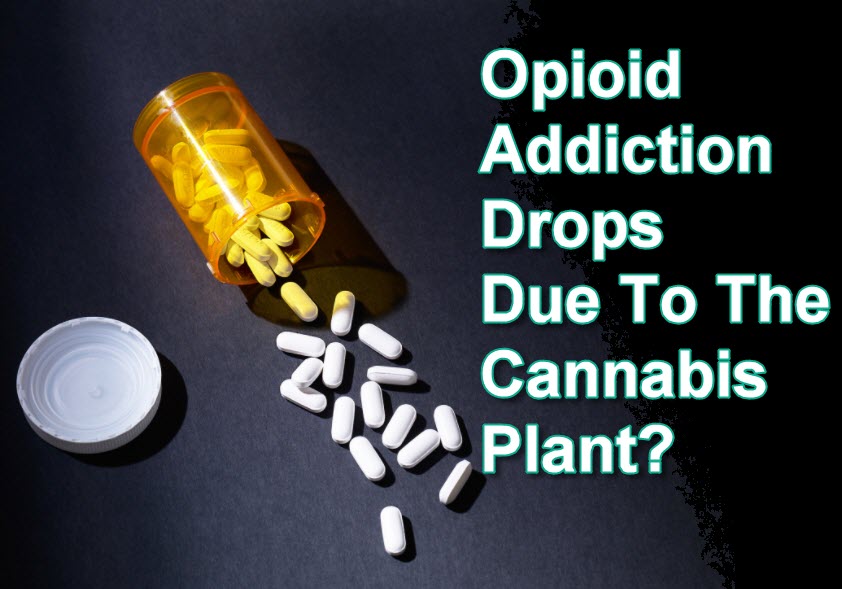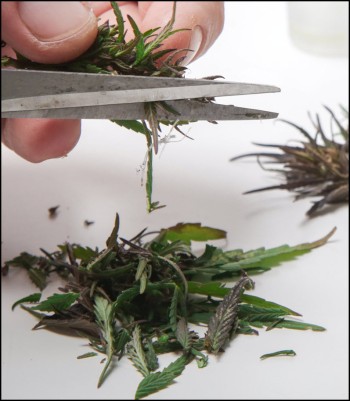Can Medical Marijuna End The Opioid Crisis?
Could Legalized Marijuana End the Opioid Crisis? Stats Say Yes. from CannabisNet on Vimeo.
Ninety-one Americans die each day due to overdosing on opioids according to the CDC. Prescription medications, such as oxycodone and methadone, are leading the death toll and causing a 15-year increase of these overdoses. Finding a solution for treating opioid addiction is a huge problem because of the physically addictive nature of this substance. One question currently up for debate is whether medical marijuana for opiate addiction is the most viable option.
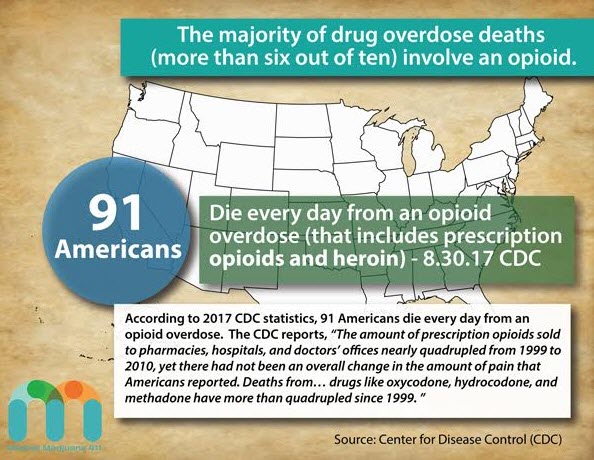
Understanding Opiate Addiction
When you become addicted to opioids this substance alters the chemical nature of your brain cells and organs. Trying to quit cold turkey and detoxing leaves your body in shock and can result in seizures and death. Yet staying dependent on opioids can lead to the quadrupling number of overdose deaths the US is currently experiencing. Part of the reason is that prescription opioid users often turn to street drugs, such as black market pills or heroin, in order to maintain their substance levels and to avoid going into detox. So while there is a nationwide epidemic, finding a safe solution is just as complicated as the problem itself.
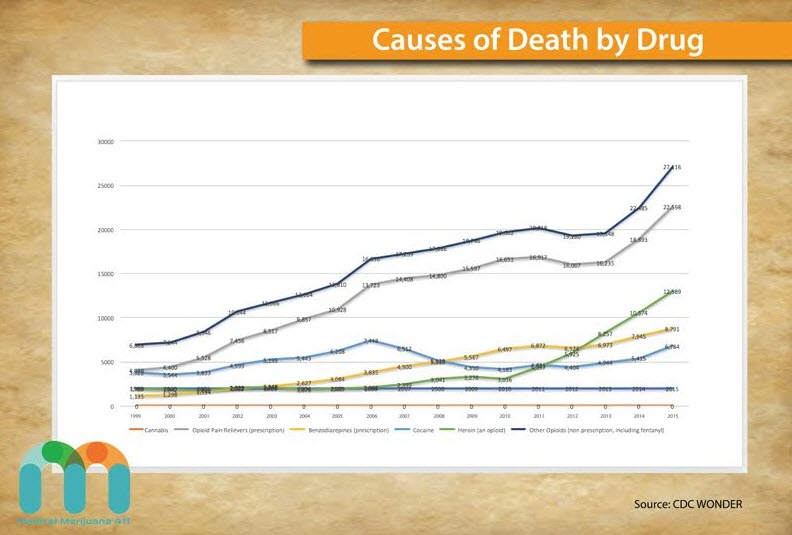
Lack of Marijuana Research
There are countless anecdotal reports of patients recovering from opiates who have benefited from medical marijuana for opiate addiction. That is part of the roadblock for medical marijuana—these reports are not scientifically backed and therefore are not tested for validity in the medical research community. The reason for this is marijuana is still classified as a narcotic Schedule I drug, right alongside LSD and heroin.
That could be changing, though, via the Marijuana Effective Drug Study Act of 2017 (MEDS Act) introduced by Senator Hatch in September 2017. According to Hatch, “It’s high time to address research into medical marijuana. Our country has experimented with a variety of state solutions without properly delving into the weeds on the effectiveness, safety, dosing, administration, and quality of medical marijuana. All the while, the federal government strains to enforce regulations that sometimes do more harm than good. To be blunt, we need to remove the administrative barriers preventing legitimate research into medical marijuana, which is why I’ve decided to roll out the MEDS Act.”
Meanwhile House Minority Leader Representative Nate Gentry is already a step ahead. Following the approval of House Bill 527, the New Mexico State Senate has implemented a strategy to effectively combat opioid abuse. According to Gentry, “Medical cannabis has great potential as an opioid replacement drug and we want to move people away from being prescribed highly addictive opiates.” Unfortunately, New Mexico Governor Susana Martinez vetoed the bill. However, the GOP-sponsored bill is a strong step in the right direction toward approving the use of medical cannabis for opioid dependency.
Potential for Pot to Reduce Opioid Dependency
While legislation proceeds, many doctors in the 29 US states and Washington DC with legal medical marijuana, are already collecting data on cannabis use. As reported in the Rolling Stone in March 2017, psychiatric nurse Anita Willard Briscoe is working at the grassroots level to gain factual data about the use of medical marijuana for opiate addiction. As a medical professional in Albuquerque, New Mexico, Briscoe has worked with a team of psychiatrists and nurse practitioners to collect data from patients using cannabis for opioid treatment.
Among 400 patients in 2015 and 2016, 25 percent successfully quit opiates while using medical marijuana for opiate addiction prescribed in her office. According to Briscoe, “[Opioid abusers] state it calms down their cravings, relaxes their…anxiety and is helping to keep them off opioids.” More importantly, by using medical cannabis to help reduce cravings, provide pain relief, and reduce nausea associated with detoxing, patients are choosing a safer alternative.
Dr. Scott Bienenfeld who is an addiction psychiatrist points out, “Opiates kill you in overdose by cutting off the brain's sense that it needs oxygen, thus the reflex to breathe is cut off and people die of respiratory failure.” Yet one of the treatments legally prescribed by drug abuse treatment programs is methadone, another form of an opioid. Why not choose a drug, like cannabis, that does not have any reported deaths among users? A zero-death rate while reducing cravings, discomfort, and nausea associated with detox sounds like a smarter solution for anyone struggling to come off of opiates.
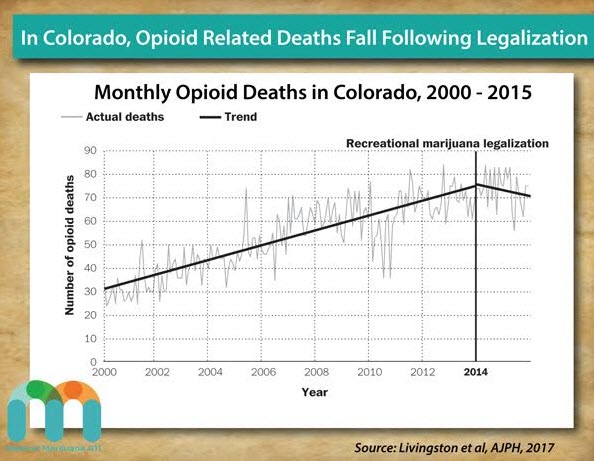
Medical Marijuana and Opioids – The Good News
Medicare data from 2010 to 2013 show that once a state institutes medical cannabis laws and cannabis is used as a substitute use of prescription drugs falls significantly. U.S. states with medical cannabis laws report 25% lower opioid overdose mortality rates.
Medical marijuana for opiate addiction has the capacity to help individuals who are struggling. In 1889, writing in The Lancet about his experience helping patients addicted to pain meds including opiates, Dr. Edward A. Birch stated: "I prescribed the cannabis simply with a view to utilizing a well-known remedy for insomnia, but it did much more than procure sleep. I think it will be found that there need be no fear of peremptorily withdrawing the deleterious drug, if hemp be employed."
Surveys of medical cannabis patients indicate that about half of all patients have been able to reduce their use of opiate medication. What’s more synergistic and additive interactions also exist between cannabis and opiates. When combined with opiates, medical cannabis helps patients find better relief and can aid those from whom opiates were ineffective.
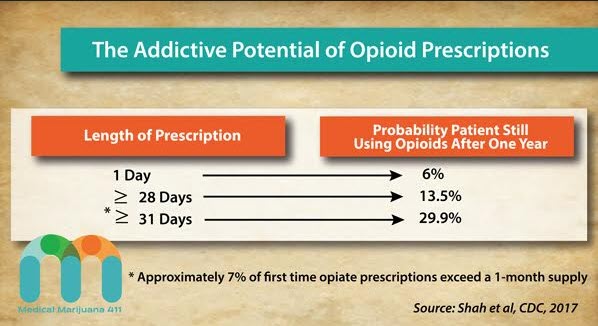
Additionally, cannabinoids can prevent the development of tolerance to opiates.
Whereas opiates can increase risk for depression, dependence, and overdose in neuropathic pain patients without increasing their functional status, cannabis is effective and low risk.
In terms of withdrawal cannabis is associated with less severe symptoms on the clinical opiate withdrawal scale (COWS), a guide designed to assist clinicians to judge the stage or severity of opiate withdrawal.
Research suggests that cannabis can be also be used as an exit drug to reduce the use of substances that are more harmful, including opioids, alcohol, and cocaine. This is why modern science is now viewing cannabis more as a terminus drug than the gateway drug it was long rumored to be.
To learn more about how marijuana is being used for healthcare purposes, visit the Advanced Learning Management System by Medical Marijuana Learning. We offer online Medical Marijuana Consultant Certification, AMA approved Medical Professional Certification and a variety of courses developed to help individuals understand how medical marijuana can work with many ailments. Topics also include: the Endocannabinoid System, Terpenes and Pain Management.
OTHER STORIES YOU MAY ENJOY...
WHY DO WE HAVE AN OPIOID CRISIS, READ THIS..CLICK HERE.
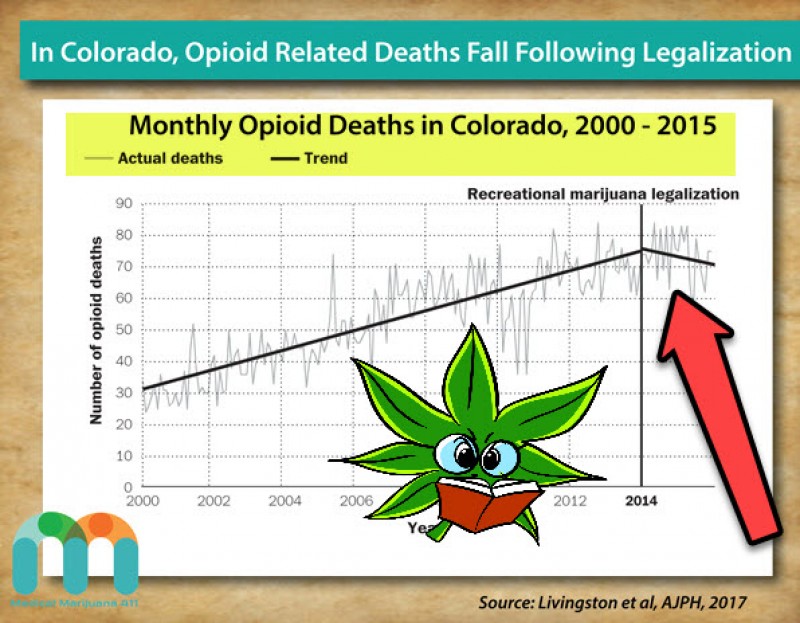 Medical Marijuana 411
Medical Marijuana 411

